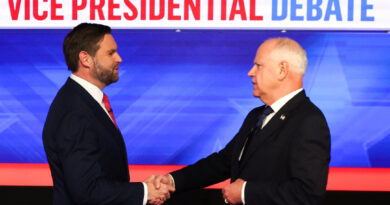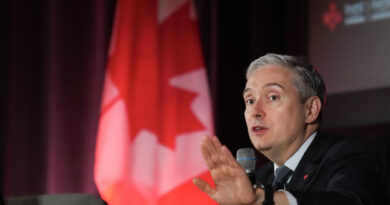Guilbeault Stands Firm: Canada Will Not Abandon Carbon Tax Despite Trump’s Tariff Threats
Environment Minister Stephen Guilbeault confirmed that the federal government has no intentions of eliminating the carbon tax despite potential tariff threats from the incoming U.S. administration.
During a meeting of the Standing Committee on Environment and Sustainable Development on Nov. 28, Guilbeault responded to inquiries from Conservative MP Dan Mazier on the topic.
When Mazier raised concerns about the possibility of 25 percent tariffs from the United States that could harm the Canadian economy, he asked Guilbeault if the carbon tax would be canceled to improve competitiveness.
Guilbeault explained, “Carbon pricing contributes to $25 billion in investments nationwide annually. Eliminating it would mean scrapping those investments, which is not something we are willing to do.”
Mazier referred to an internal report from Guilbeault’s department that predicted a $25 billion loss in Canada’s GDP by 2030 due to the carbon tax, advocating for its removal. The Conservatives have consistently urged the Liberals to eliminate the carbon tax, arguing that it raises costs for essentials like gas, groceries, and heating without effectively combating climate change.
The carbon tax is scheduled to increase from $80 per tonne to $95 in April 2025, with increments of $15 per year until the end of the decade. Mazier questioned Guilbeault about the government’s stance on potentially raising the tax to over $170 after 2030.
Guilbeault replied, “There are no decisions made yet regarding carbon pricing post-2030.”
On Nov. 25, U.S. President-elect Donald Trump threatened a 25 percent tariff on goods from Canada and Mexico until both countries address illegal immigration and drug smuggling concerns. Canadian officials and business organizations are working to avoid these tariffs as the U.S. is Canada’s largest trading partner.
During his previous presidency from 2016 to 2020, Trump did not prioritize climate change, withdrawing the U.S. from the Paris Agreement. This decision was reversed by President Joe Biden. Trump also implemented policies to support fossil fuel use.
Trump has pledged to increase fossil fuel drilling and repeal key climate policies enacted during Biden’s presidency, such as the Inflation Reduction Act promoting clean energy and electric vehicles, upon his return to office on Jan. 20, 2025.





